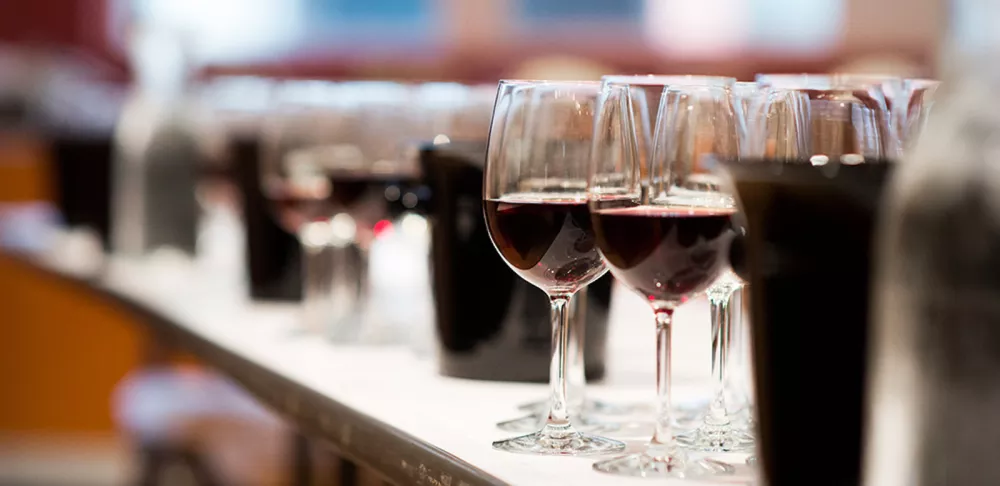John Ragan MS teaches Understanding Wine, a 10-week, in-depth course developed in collaboration between ICE and Danny Meyer’s Union Square Hospitality Group (USHG). As USHG’s senior director of operations and master sommelier, John works with each of USHG’s restaurants to evolve their exceptional wine programs.
We’ve all been there: You’re sitting down to a high-stakes dinner — maybe you’re meeting the in-laws, closing a deal or just trying to make a really good first impression — and someone hands you the wine menu. Ordering wine in a restaurant can feel a little intimidating, especially if you’re making decisions for a group. But with a few key tips and guidelines under your belt, ordering a great, versatile bottle with outstanding value can be a breeze.

I’m not fluent in wine speak. How can I effectively communicate what we’re looking for without seeming like I don’t know what I’m talking about?
Don’t try to use language you’re not comfortable with. Restaurant professionals have heard it all and good restaurants can decode your language and translate that into good wine. Use the words you’d normally use to explain what the wine smells and tastes like to you and it helps if you can contrast what you’re looking for with what you’re not looking for. For example, whether you say soft vs. heavy; light vs. full-bodied; or delicate vs. rich – you’re going to get your point across.
I’m ordering in front of a group. How do I gracefully communicate my budget to the sommelier?
If you want to be discrete, you can always point at a wine in the menu and say “something like this.” But if you’re comfortable with a little more transparency, I find you’ll always get a better outcome by being clear and direct. If you tell me you want a great red for $65, that’s game on for me.
Most sommeliers like that challenge and will rise to the occasion. When you name the target price explicitly, you’re speaking a universal language and you can’t go wrong. But if you ask for a “midrange” wine, a server might interpret that as $80 when you meant $60. Now you’re speaking a subjective language that could lead to misunderstandings.
I’m ordering steak, he’s opting for fish and she’s a vegetarian. What can I order that will please everybody?
If there’s one overarching element that will make just about any dish taste good, it’s acidity! Grapes grown in cooler climates (whether red or white) have a higher natural acidity and tend to keep the wines crisp and more refreshing. Next time you have a mixed table, don’t focus on red or white but rather something with great acidity to keep everyone happy.
Cool climate grapes to look out for include Chenin Blanc and Gruner Veltliner for whites, and Cabernet Franc from the Loire Valley in France for red. And don’t miss reds from Sicily — though it’s a warmer climate, the high elevation of those vineyards can produce remarkable acidity in the wines.
Why do people swirl the wine when a taste is poured in the glass?
When a bottle is opened, especially if it’s a few years old or more, the wine's aromas aren’t immediately accessible. Swirling a glass of wine opens up the aromas. But don't shake the wine excessively. Three loose turns should do the trick.
I really want to hit it out of the park. What are some amazing pairings that will impress my dinner guests?
A few classic pairings have truly stood the test of time: lobster and Chardonnay, white truffles with Nebbiolo and foie gras with Sauternes — these pairings never disappoint. But sometimes the best pairings are unexpected — great wines with simple, soulful foods can produce memorable “a ha” moments.
A great Chablis with fresh oysters (ideally near the source!) is a pairing that really drives home the seabed terroir of the wine. A mature Chianti with a great pasta Bolognese will transport you to Tuscany for the price of a nice bottle. My favorite pairings happen when a few great ingredients can conjure even greater complexity from a wine and vice versa.
Ready to take your wine knowledge to the next level? Click here for more information on ICE + USHG’s Understanding Wine course.



